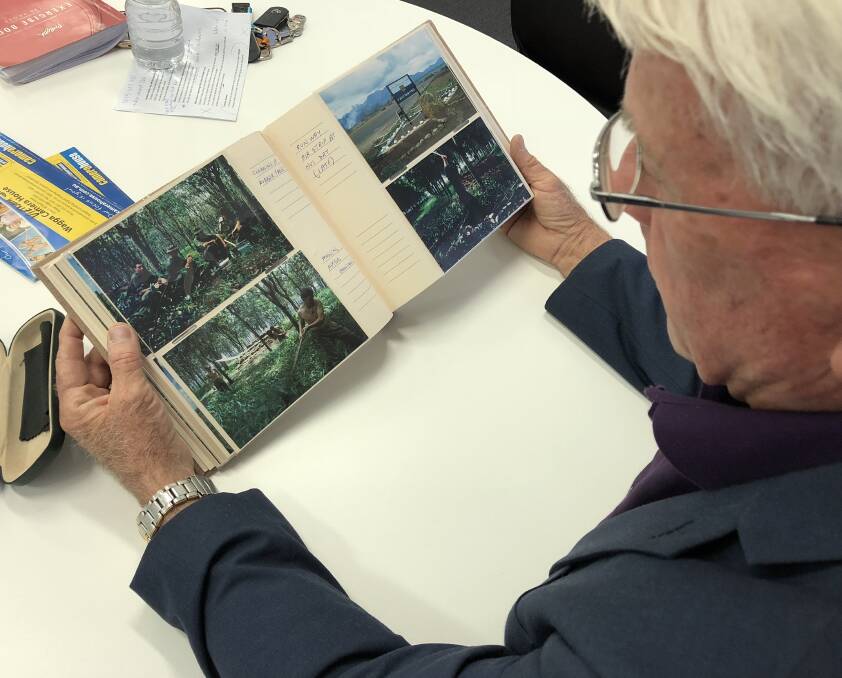
IT has taken 50 years for the Australian military community to recognise the gallantry of the soldiers who fought in battles outside of Long Tan, during the Vietnam War.
Subscribe now for unlimited access.
or signup to continue reading
The Battle of Coral-Balmoral was a 26-day conflict in which outnumbered Australian diggers defended the fire support bases of Coral and Balmoral, against the heavily populated North Vietnamese and Viet Kong forces.
During this battle 26 men were killed and more than 100 were wounded.
A service was held at the Ingleburn RSL Sub Branch Memorial Garden on May 17 to honour the Battle of Coral-Balmoral unit with a citation award for gallantry.
Despite Junee resident and former soldier Derek Broad not being aware of the commemoration, he said this citation award was significant because veterans have waited so many years for recognition.
“When we came home we weren’t allowed to march and we were spat at,” Mr Broad said.
“The RSL wouldn’t let us march at all because it wasn’t considered a war, and that was told to my face and my wife.”
Ninteen years later, the men were finally given a welcome home parade and this was the first time the Australian public accepted the men since the war.
“Almost 20 years later, we finally got to march but this was down the back,” he said.
“Now they want to march us up the front with the school kids at the back.”
Mr Broad said the treatment they experienced from their own country when they returned home added to the emotional trauma.
“We all suffer from post-traumatic stress disorder and we now take medication, which we will take for the rest of our lives,” he said.
“A lot of guys tried to beat [PTSD] by just consuming alcohol and we say we did beat it for a lot of years, but then we hit a brick wall and realised we needed help.
“We never told our story, I couldn’t even sit two years ago and talk to you like this.
“But I think it’s time that people did really know that there was more to what went on in Vietnam than Long Tan.”
Junee resident and long-term friend of Mr Broad, Ian Manwaring, said this award has had a “dramatic effect” on the men due to the controversy that surrounded them when they returned home.
“It meant so much to these men, because they suffered so much from their own country,” Mr Manwaring said.
“Our ex-servicemen from the first two world wars and the Korean War, marched through the cities and they were heralded as great Australians.
“But these blokes didn’t experience any of that until many, many years after it, where they were finally given a welcome home parade.”
Related links:

